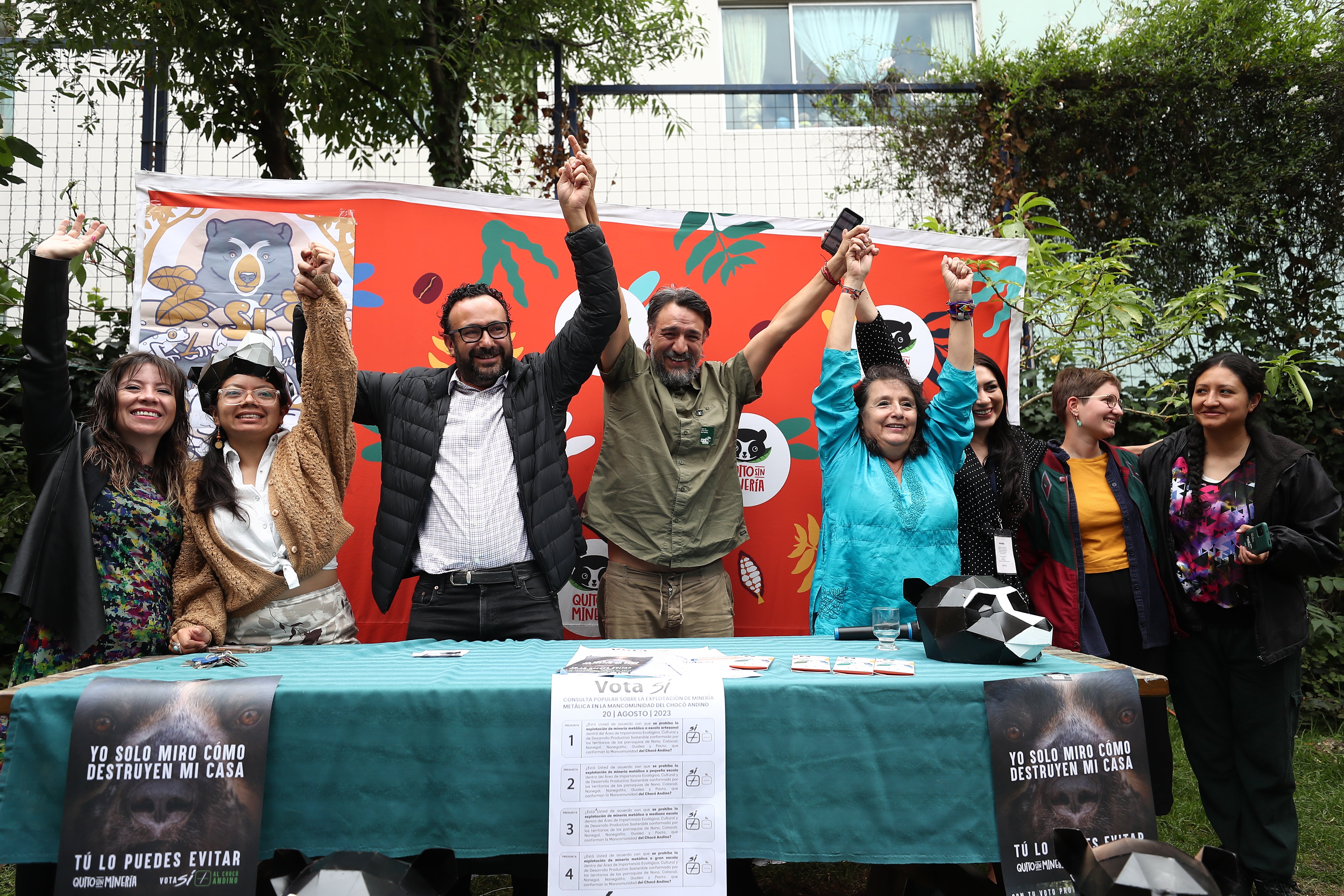The referendum that could change the planet forever
Here in oil-dependent Ecuador, people have just voted to stop drilling in the Amazon – even though they will pay a heavy price for putting life before profit. If they can do it, argues Scarlett Westbrook, why can’t the rest of the world?


Just two days ago, Ecuadorians voted to stop oil drilling in the Amazon’s Yasuní National Park by a margin of nearly 20 per cent, in a landmark referendum that is the result of more than a decade of campaigning from indigenous communities across the country.
This historic result means that oil drilling in the Ishpingo-Tambococha-Tiputini oil project, responsible for 12 per cent of Ecuador’s oil production, will be permanently banned and the project’s infrastructure dismantled. Not only this, but the government must now implement a remediation process to try to make up for the damage caused by the oil field within the next year.
Yasuní is often described as one of the greatest areas of biodiversity in the world, covering a region of over 2.5 million hectares and housing over 610 types of birds and hundreds of species of reptiles and amphibians. It is home to many indigenous communities, including the Tagaeri and Taromenane people, who have been fighting relentlessly to protect their homes from the destruction caused by oil extraction and the climate crisis.
The referendum came about when in 2013 Rafael Correa, then president of Ecuador, pledged to stop oil drilling in Yasuní if the international community would donate to make up for the subsequent lost income. However, with less than 20 per cent of the necessary funds raised, the proposal failed and drilling began in 2016. Environmentalists across Ecuador led by indigenous communities petitioned a referendum to bring the issue of oil drilling in Yasuní to a vote, collecting over 750,000 signatures. After years of jumping through legal hoops and other logistical obstacles, the vote finally took place on Sunday and nearly 60 per cent of people voted to be on the side of environmental protection, rather than exploitation.
This is a decision that could change everything. The Amazon is a carbon sink for us all, as it absorbs carbon emissions from the atmosphere, but deforestation from industries such as oil mining has been linked by scientists to reduced rainfall which consequently accelerates the demise of the rainforest, as well as threatens biodiversity and causing much more widespread environmental damage.
By voting to stop oil drilling in the Amazon’s Yasuní, Ecuador’s people have chosen to protect biodiversity and life, despite this causing them enormous financial repercussions. Rating agency Fitch estimated a $600m fall in revenue if the vote was won earlier this year, and this will no doubt lead to austerity measures. But why must nations in the so-called “Global South” be left to pick up the bill?
Surely, polluters must be made to pay for compensation to keep oil untouched, to go some way towards making up for their enormous environmental damage. Countries and corporations that have built up their own wealth at the expense of the environment of countries such as Ecuador should also pay reparations. We shouldn’t have to choose between preserving our ecology or our economy – and we don’t have to if corporations and countries fulfil their historic responsibilities to make up for the damage they have caused.
The historic result in Ecuador could not make it any clearer that when given the power to do so, people are prepared to put the planet before profit. However, there is still work to be done, as Ecuador’s referendum does not stop all oil drilling in the nation. But something world-changing has started right here in Ecuador.
If a nation as oil-dependent as Ecuador can say no to oil drilling, then surely it couldn’t be easier for the rest of the world to do the same.



Join our commenting forum
Join thought-provoking conversations, follow other Independent readers and see their replies
Comments